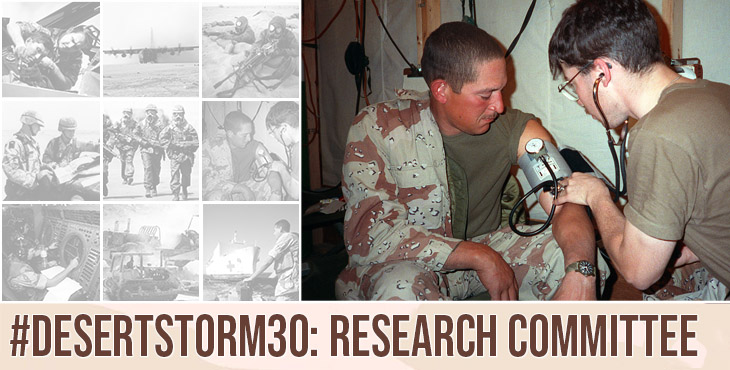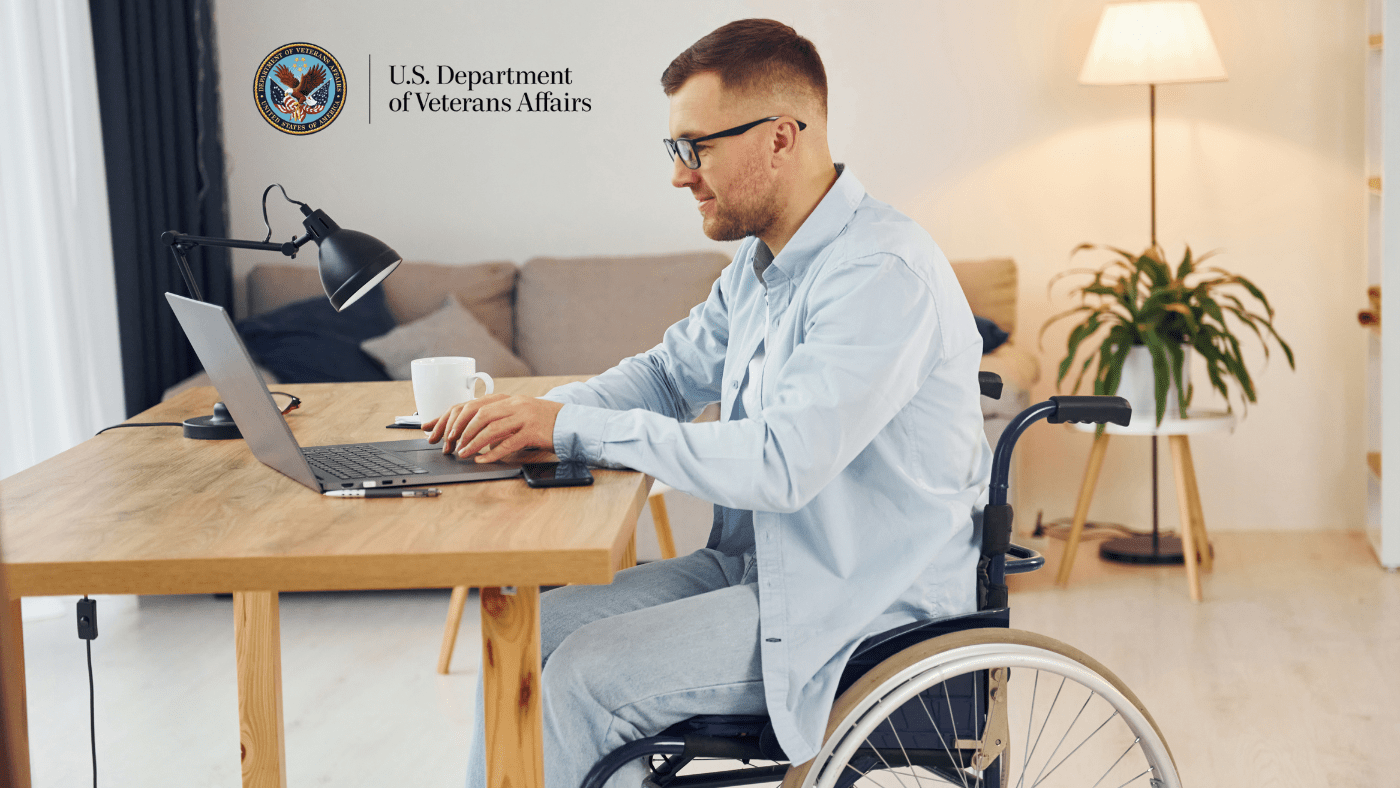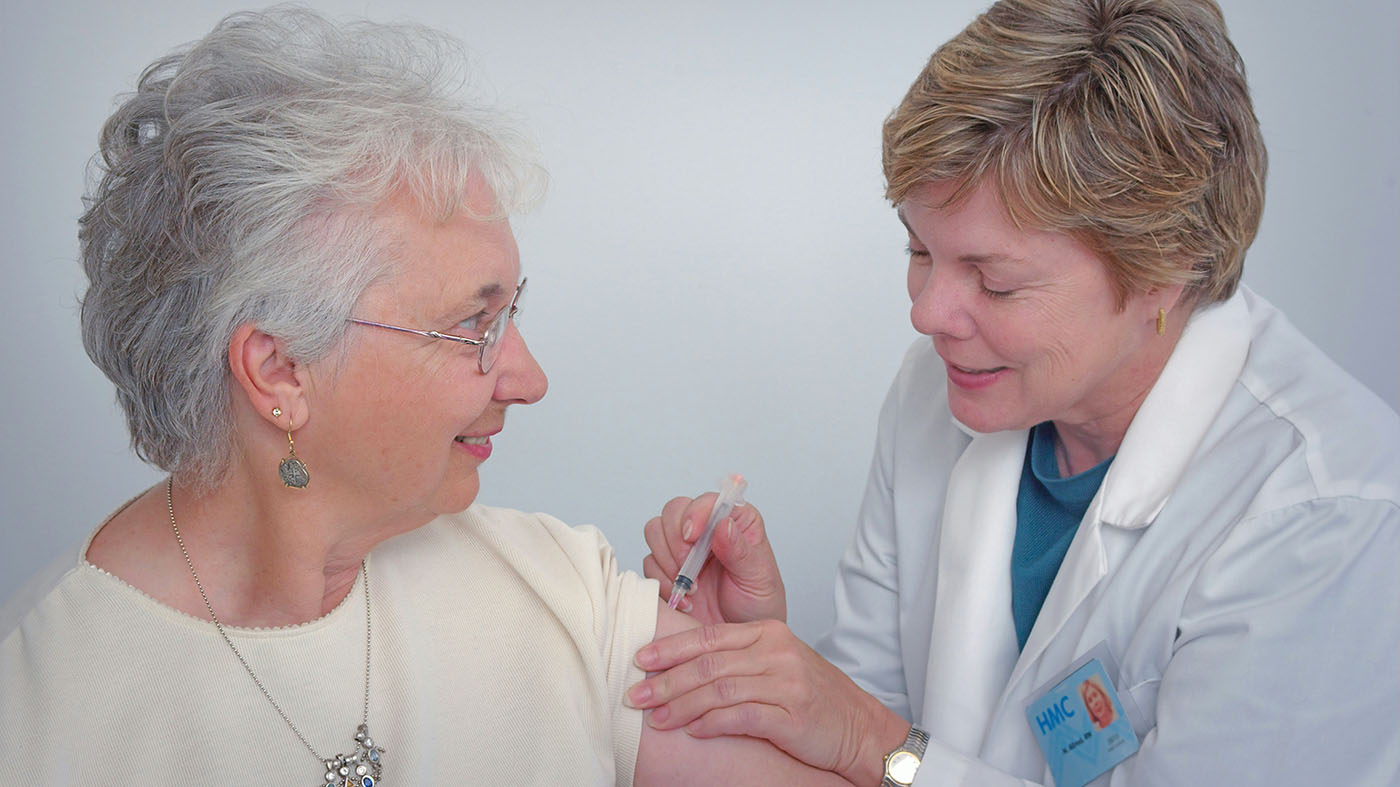Desert Shield and Desert Storm Veterans who want to comment on their health concerns or ask about Gulf War Research can do so through the Research Advisory Committee on Gulf War Veterans’ Illnesses.
The committee provides advice and makes recommendations to the Secretary of Veterans Affairs on proposed research studies, plans, and strategies related to understanding and treating the health consequences of military service from the war.
Gulf War service members were possibly exposed to single or a combination of toxicants of unknown quantities, said Dr. Karen Block, Gulf War Research Program Office of Research and Development.
“The voices and stories from Desert Shield and Desert Storm Veterans are invaluable for improving care,” Block said. “The Gulf War Program has funded new evidence- and implementation-based research projects based on their feedback.”
A 2018 study showed that the population of Gulf War Veterans treated at VA tends to have more medical conditions than other Veterans or continuing service members. Additionally, the study stated deployed Veterans typically have poorer health outcomes than non-deployed Veterans of the same era.
Veteran engagement
The Veteran Engagement Subcommittee stood up in 2019 for outreach to Desert Shield and Desert Storm Veterans in rural geographical areas. The subcommittee discusses the evolvement of their health concerns over the past 30 years, clinical research, and what Veterans would like the committee to communicate to VA. These sessions developed new research partnerships. They also increased Gulf War Veteran participation more than three times as previous committee meetings.
The committee made several recommendations in the past few years. One of these was a request for VA to partner with the National Institutes of Health to conduct a deep phenotyping study. The VA multi-site study will recruit deployed Gulf War Veterans with or without Gulf War illness. Results from this study will shed light on underlying biological mechanisms of Gulf War illness as well as identify potential ways for intervention.
The committee is currently working on new recommendations. The next Veteran engagement session is noon-3 p.m. Eastern Feb. 17, 2021. Immediately following the meeting is a 30th anniversary tribute to Gulf War Veterans.
For those with computer access, watch and listen online at http://va-eerc-ees.adobeconnect.com/racg-ves-feb2021/. For those with phone access only, the call-in number is (800) 767-1750; access code 56978. The call-in is for the Veteran engagement session only.
Learn more
Topics in this story
More Stories
Over the five-year program, more than 14,000 VET TEC beneficiaries completed their program and nearly half have reported finding meaningful employment with an average starting annual salary of $65,000.
VA is calling for applicants for the 2024 Specially Adapted Housing Assistive Technology grant.
Updated COVID vaccines are available free of charge to Veterans receiving care at VA .







I’d like to hear more from the VA about Mass Cell Activation Syndrome in Gulf War Vets. New research efforts are showing a assumptive link between Gulf War service and the onset of MCAS. Why aren’t ALL VA health centers treating their patients for this? Why don’t ALL VA centers even know about this?
I too participated in the Walter Reed Gulf War Illness Center program. But after it was over… crickets from the VA. i started experiencing hashes and anaphylactic reactions while in the Gulf…. six months after redeployment I was declared medically nondeployable as my health issues spiraled downward. Eventually medically discharged in 1996. Since then a cascading series of Gastro-Intestinal, neurological, pulmonary, cardiac, orthopedic, and mental health issues ( PTSD / and daily recurring anxiety and panic attacks ) have left me unemployable. 30 years and one week from the day I first arrived in the Gulf, I was fired from my last job for medical reasons. Now I only have the strength to work around the house for 3 or 4 hours before fatigue is so overwhelming I have to sit down or even go to bed for the day.
Every VA doctor I see refused to even talk about my Gulf War service. I went through three complete chemical decontamination procedures during my tour after confirmed exposure to sarin, VX and mustard agents. And the weeks of walking in, breathing in, and living in contaminated sand and air of the oil fires. Let alone burn pits, and all the bogus vaccines and experimental pills we were forced to take.
VA doctors still say that my symptoms are psychosomatic, NORMAL aging, or poor life choices. Within the last year I was accused of being lazy and malingering, for about the hundredth time by a VA “doctor” .
Assumptive correlation MUST become the VA standard for treating Gulf War vets…. not shaming and outright dismissal.
In Nov 1992, I was admitted to the GULF WAR ILLNESS CENTER- Walter Reed Army Hospital for what was called Phase 1 of the Gulf War Syndrome. Various tests (neurological, physical, blood etc.). After this initial comprehensive testing, I was referred to the Phase 2 testing. This testing phase involved more extensive testing as an inpatient. The conclusions of the testing had shown visual and neuropsychological impairment and an onset of siezures.
I can relate totally, I agreed to a seven day study when I returned to my home state in New Jersey I went through a battery of tests. In short whatever the study team could attribute (concerning all my Medical complaints) to other “geographical environmental exposure” i.e. the panel literally denoting that my symptoms could be attributed to where I grew up at. In addition to stating to me the same comments you were provided as a reason, aging etc…. I was assigned to NBC unit The 91st Chemical Unit and we were the first thing smoking on a military style 747, no time wasted for our company. We were the first ones with FOX vehicles (chemical detection vehicles.) In short after having to be Air Vac out of the combat zone due to what was described as a unknown airway respiratory disease by an Air Force Medical Team unit ( I served in the Army) ever since then it seems like there is a large and widespread effort to dismiss all responsibility from the Military of our conditions. In my own experiences it seems like the process is to demean you like your some sort of bum with his hand out begging without just cause. I digress my rant is over.